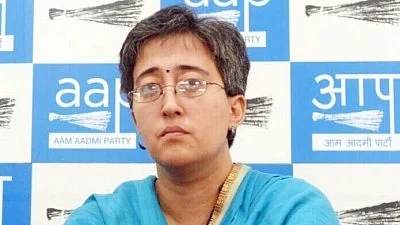Delhi Water Minister Atishi Marlena expressed dissatisfaction on Thursday, 28 December with the delays in the implementation of in-situ ammonia treatment in Wazirabad Pond.
The Chief Secretary of Delhi Naresh Kumar was urged to address the significant delay in the project's implementation, despite repeated follow-ups and instructions from Chief Minister Arvind Kejriwal.
CM Arvind Kejriwal ordered the implementation of an in-situ treatment project in March, but the project has not been started even after nine months. "The project was supposed to be implemented within 4-6 months. The Chief Secretary was himself present in the meeting. Despite this, the project is yet to take off, plunging a significant part of Delhi into a water crisis yet again," said Atishi.
“I have been informed that the production capacity of Wazirabad and Chandrawal plants dipped by up to 50% of their capacity, and the average production loss was around 35–40%. This crisis adversely impacted almost one-fourth of the national capital, affecting densely populated areas such as Sadar Bazar, Civil Lines, Old Delhi, Mukherjee Nagar, Burari, Patel Nagar, and Rajinder Nagar, to name a few. Several urgent measures had to be taken by the DJB to resolve the issue at hand," mentioned Atishi in her order to the Chief Secretary.
Ammonia levels in the Yamuna River reached 2.8 ppm, affecting water treatment plants in Chandrawal and Wazirabad.
"Despite rising ammonia levels in Yamuna, the crucial treatment project faces significant delays, adversely impacting the lives of lakhs of Delhiites," said Atishi.
"If decisions taken in high-level meetings chaired by the Hon’ble Chief Minister, Ministers-in-Charge, and Chief Secretary are not implemented, then it raises serious questions about the government’s working machinery," she added.
The Water Minister has instructed the Chief Secretary to report on the delays in the Delhi Jal Board's ammonia treatment project, submit a timeline for its functionality, and personally monitor its implementation by 1 January 2024. They also need to ensure that the tender for the in-situ ammonia treatment plant is floated by 15 January 2024
